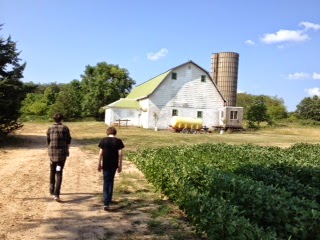This week's writing assignment: synopsis of a 10-minute stage play featuring less than four characters.
Brace yerselves fer heavy weather, me hearties!
Able-Bodied Seamen.
A ten-minute stage presentation
synopsis.
The scene opens on three sodden and
bedraggled seamen cast ashore on a swampy, tropical island. They are worming their way through fetid,
tannic water, spongy, rotten detritus, and dense green foliage, crawling for
fear of swamp creatures. We see a large
native structure just visible through the undergrowth in the distance. Trailing them are the remaining survivors who
are struggling to keep up but falling away one by one, succumbing to exhaustion.
The weather is tumultuous; rain and wind lash the fraying palm fronds overhead,
waves thunder against the shore behind.
Seaman 1: grunting - “Oy, it’s a bad ‘un! Glory likes we swallowed the anchor this
time, mates!”
Seaman 2: panting - “Can’t say as I’ve suffered
worse, tho’ last week was a near corker!”
Seaman 1: tossing a rat carcass off to the side -
“Aye, that it was, sure, but then balls-to-four found us snug in our hammocks,
what, whereas now I’d say we’ve been swoggled with a right bag o’ dicks!”
Seaman 3: pulling aside some leaves - “Stopper yer
gob-holes gents, I’m glassin’ as pretty a sight as you ever laid peepers on!”
Seaman 2: craning over Seaman 3’s shoulder - “I
don’t see nothin’, ya daft blivit!”
Seaman 3: pointing toward the native structure, a
large, rounded longhouse, just visible through the deluge – “There! Fifty
yards ‘n ten points off starboard! Wobblers-to-weevils we’ll find some’at in
there!”
Seaman 3 begins enthusiastically
crawling forward and is immediately devoured by quicksand.
Seaman 2: recoiling and scuttling around the quicksand
closer to Seaman 1, who has been making methodical, steady progress toward the
longhouse. “Blimey!” He pants – “Did
you ever see an albatross like? Poor sod, never had no chance, just slipped off
the deck like a squid down a scupper! If I’d been on ‘is ruddy stumps my black soul’d
be eight bells on the dog watch, smoking the Devil’s raking shot abaft me poopdeck!”
Seaman 1: grinding inexorably onward – “It’s
foggin’ my noodle why the Cap’n set his compass rose to findin’ The Cave O’
Wonders – I ain’t never seen a Shellback so obsessed with Neptune’s gold! Why, he tore us through spindrift like to
split the mizzen, ‘n when I told that red nose barnacle we was sougeed to
slivers and barrin’ a prompt haul-to we’d be crab dash for the Locker, he hit
me broadside with that icy, heart-chillin’ stare o’ his and roared he’d be a
shite-kneed swabbie if some pollywog bagger fresh from the sea-chest would hole
his prize at the waterline!”
Seaman 2: struggling to keep up – “Blow me! What’d you say to that?”
Seaman 1: nearing the longhouse – “Bollocks to pipin' at that sparkin' keg o' black! I ain’t no bell-tapper: I turned-to right smart, got a fid in my
teeth and double-timed for'ard to splice a pelican bight 'ow the triple-strand
over t' the maidenhead bitts. I’d just
wankled a keeper hard to the standing part when a whiff o’ the break thundered
over the wind. I couldn’t see past the
bowsprit and it weren’t squared monkeyin’ up the maiden with the foam what it was,
but I ain’t no greenhorn – I knows a reef when it whispers in me ear
. I sung out to the bosun, up in the
sheets, but the damned williwaw luffed me like a pair of silken
underdrawers; I jobbered fast to the
gunwhale and blow me down if we didn’t
bend on that reef like a stuck cachalot holing a Nantucket canoe! Looks
over his shoulder at pounding surf and the distant few remaining seaman
floundering in the muck. “That growling she-bitch flung us on this bit o’
scratch and now I wouldn’t give a rancy bit if those sorry milt yonder ain’t
deep-sixed: rum-to-raisins they ain’t like to see another beautiful bleedin' egg laid in Neptune’s lap.”
Seaman 2: trailing by several yards – “Wait up a
bit, won’t you shipmate? I’m full-fagged,
n’ your clothes is shredded down to what God gave ya. T’ain’t fittin ta meet the natives with no
more decency than a newborn babe – ‘low me rest my bones a bit and I’ll give ya my
oilskins – they’re makin’ me a sea-anchor, anyhow!”
Seaman 1: pounding on the longhouse door – “Oy, belay that, mate: natives ain’t used to oilskins and there ain’t no call for
‘em off the heavy weather watch! If
their sainted eyes can’t rest on a poor, knackered sailor slicked in his
birthday suit, that’s just poor kip: they can bugger off an’ be damned!” Resumes
pounding weakly.
Seaman 2: straining to drag himself closer – “Damn
YOUR eyes for a black-hearted bastard! I
swear on my dear mum's holy bones I’ll fillet you for a bilge-bagger if you don’t wait one bleedin’ minute, ya poncy git!
Just then
the longhouse door opens and strong, brown feminine hands reach out to gently
pull Seaman 1 inside. The door closes
behind him just as Seaman 2, with his last remaining strength, drags himself to
the threshold. He pounds and shouts
until his hands are bloody and his voice hoarse, to no avail. His head falls slowly into the mud and he
breathes his last.
End.

















































